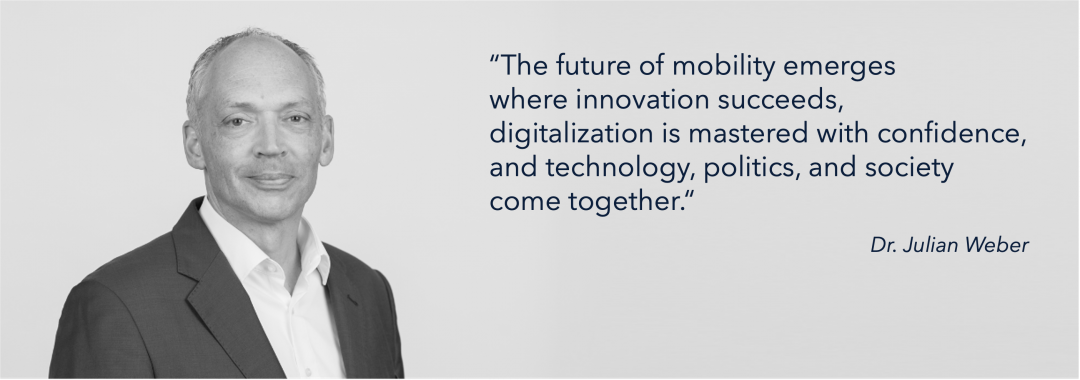Mastering complexity means securing the future
The automotive industry is at the center of a historic storm. Digitalization, the shift in drive systems, and new geopolitical conditions are changing not only products, but also the rules of entire markets. Today, companies and institutions rarely lack technology, but rather alignment—the ability to unite the heterogeneous interests of politics, business, and society into a viable strategy.
Exclusive consulting for decision-makers
Strategic Alignment for Future Mobility
Whether it’s the transformation to an e-mobility ecosystem or new digital business models: I validate your strategy not only in Excel, but also in reality, so that measurable progress can be achieved even in dynamic and uncertain times.
Socio-Political Positioning
In mobility, new offerings must not only inspire customers, they must also win over society and politics. I help companies and associations to integrate sustainability and safety and to effectively position innovations.
Digitalization & Innovation
Technology needs acceptance, especially internally. Without committed managers and employees, change processes get stuck. From disruptive innovations to digital transformation: I accompany change that is critical to success.
Visionary with a down-to-earth approach
As a manager, adjunct professor, and former lobbyist, I am familiar with the three currencies of the mobility transition: profitability, legislation, and innovation. My track record is my promise:
- Industry leader: Nearly 30 years of operational excellence at the BMW Group – from pioneering work on e-mobility in Project i to managing group-wide digitalization projects in customer support.
- Political strategist: As an advocate at the VDA, I successfully coordinated and negotiated the German automotive industry’s positions on digitalization regulations – at the national and international level.
- Visionary: As an adjunct professor at Clemson University, author of specialist books, speaker, and thought leader, I combine scientific depth with communication skills and entrepreneurial pragmatism.
I don’t offer standard solutions. I offer bridging & alignment – the integration of complex stakeholder structures into alliances that last.
Engagements & Thought Leadership
- Board & Advisory: Expertise for startups and established players (e.g., eco Association, PeerCharge).
- Speaker & Author: Over 200 talks and publications (e.g., nonfiction book “Moving Times – Mobility of the Future”).
- Thought Leadership: 10,000+ followers on LinkedIn.
Interested? Let’s get in touch.
